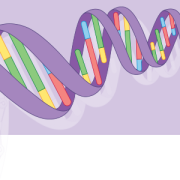A ‘world first’ in pre-emptive pharmacogenomic testing
Researchers show a 30% reduction in adverse reactions to common clinically prescribed drugs through pharmacogenomic testing
The first large-scale and multi-country study has shown that pharmacogenetic testing reduced adverse reactions by 30% in patient populations. Published last month in The Lancet, the three-year PREPARE study – pharmacogenomic testing for preventing adverse drug reactions – used a single gene-panel, deployed across seven European countries, that was designed with common drug-gene side effects in mind.
“In this world-first, we have been able to demonstrate that adverse drug reactions can be drastically reduced if pharmacogenetic testing is implemented,” said the University of Liverpool’s principal researcher on the study, Professor Sir Munir Pirmohamed.
How do genes influence how a drug affects us?
We all have genes whose variants will influence how a taken drug is processed (or metabolised) in our body. For example, an ultrarapid-metabolising gene variant will mean the drug leaves the body sooner, which can lead to that drug being underdosed in the patient. On the other hand, a slow-metabolising gene variant means the drug stays in the body longer, which may result in overdosing.
When a doctor prescribes a drug, and to avoid over or underdosing, they might order a pharmacogenetic test to know what type of gene variant (or variants) their patient has. A genetic panel – The Lancet paper calls this a ‘pharmacogentic panel’ – is a type of test that looks at multiple relevant genes that are known to affect the, in this case, metabolism of a drug. Based on the test’s results, the clinician may alter the drug’s dosage or even prescribe a different drug entirely.
- Further learning: What are pharmacogenomics’ mechanisms of action?
What the study found
The PREPARE study’s gene panel looked for variants in 12 defined genes that have known drug interactions. Researchers recruited almost 7,000 patients to take part in the study. They were randomised between groups, which were either given standard treatment or had their prescriptions adjusted based on their test result. After a period of time, patients were asked to self-report on any adverse drug reactions or side effects they had.
The researchers found that 2-in-10 patients who had their treatment informed by the gene panel had side effects. This is lower than the control group, which saw 3-in-10 patients reporting as having an adverse drug reaction.
Pharmacogenomics in the NHS
In the NHS, adverse drug reactions account for about 7% of hospital admissions. This is a significant problem, both for patient wellbeing and healthcare costs. The PREPARE study shows us that a genetic testing panel is an efficient way to look at multiple genes in one test, and that it can ultimately be incorporated into a wide variety of different care settings across a country.
Some pharmacogenomic tests are already part of the NHS National Genomic Test Directory, such as those against the DPYD gene. Variants in this gene are linked to severe and possibly fatal reactions to fluroropyrimidines, a type of chemotherapy drug.
The NHS England strategy document, Accelerating genomic medicine in the NHS, which we wrote about last year, outlines how the NHS will embed pharmacogenomics as part of routine clinical care. The report noted that the groundwork for this will be laid in the coming years.









